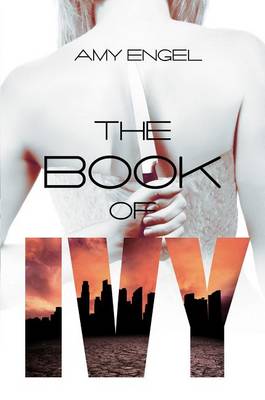Reviewed by girlinthepages on
First and foremost, I could not look past how much this book reminded me of the plot of the tv show Revenge. Angry daughter trying to avenge a parent's death? Check. Infiltrating enemy by marrying into the family's handsome son? Check? Struggling to reconcile her plan with her growing emotions? Check. Scheming mother in law who hates protagonist? Check. Character named Emily Thorne? Check. Maybe this was just a coincidence, but there were so many similarities...
Moving right along. As I said before, I adored the idea of this book. I read the first few pages while at the bookstore to be sure I felt it was worth the investment, and I was sucked in. Readers are thrust right into the action on Ivy's wedding day, and the world building is done throughout the book rather than info-dumped at the beginning. Ivy has to marry the son of the elite family that runs the post-apocalyptic town and then infiltrate their intelligence to get information for her family, eventually leading to a revolt that will be sparked when she murders her husband. This sounds like it should be action packed. Yet I spent most of the book wondering when it was going to pick up. Ivy seems like she'll be a strong protagonist but she spends most of her time lamenting her mission and wobbling back and forth between loyalty to her family and loyalty to her husband. Now this is not entirely a bad thing, as I applaud her for trying to find her own identity and solutions rather than blindly following her father's manifesto once she's started her "mission." Yet I feel like I spent more time reading about her tip-toeing around Bishop and ho-humming about her life in their little bungalow instead of spying and political intrigue.
The book also follows a lot of typical dystopian tropes, most notably the "beyond the fence" concept. There's a fence that runs the perimeter of the town that no one (aside from criminals who are "put out") has ventured past since the construction of the fence after the apocalyptic nuclear war. As per usual, there's a lot of mystery surrounding the fence and in true dystopian protagonist fashion Ivy spends a large amount of her time contemplating what lies beyond it. Ivy has strong feelings against anyone getting "put out," derived from her father who wants more freedom and humane treatment for the town's citizens than Bishop's father currently allows as mayor. I enjoyed that Ivy was forced to reevaluate some of her family's positions, especially regarding the fence, as her holier-than-thou opinions are tarnished when she's informed as to just what some of those who are "put out" did as criminals. The novel portrays the idea of being "put out" as a moral dilemma for readers, showing the sociopathic criminals alongside the rather harmless lawbreakers receiving the same punishments, and forcing Ivy (and readers) to seriously consider how to punish and protect such a fragile community.
I also appreciated that there were a lot of pro-feminist themes, although they were often told to the reader rather than shown. For instance, one of Ivy's father's biggest complaints about their society is forcing young girls to marry young boys at the tender age of sixteen in arranged marriages, often entering into abusive relationships that there's virtually no way out of (divorce is rare and can only happen with approval from the mayor). Ivy often acknowledges that if a match cannot be made for a girl it's her fault rather than a boy being incompatible. While I was happy and refreshed to see these themes present in the novel, they're not very subtly woven in. Ivy usually has direct thoughts telling the reader about the submissive female responsibility in the arranged marriages (through her own thoughts and through describing the actions of her abusive next-door neighbor) or her father goes on at length about how wrong the marriages are when he's trying to guilt Ivy into completing her mission when she's wavering.
Overall: I was expecting a thrilling dystopian with a lot of political intrigue, but The Book of Ivy ended up being much slower than I expected. I appreciated the pro-feminist themes, but I wish the book had employed more showing rather than telling. I was also hoping for a slow-burn, passionate yet dangerous romance (living with the enemy and all) but the romance was tame to the point of almost non-existence. I will say that the ending surprised me and I was definitely not expecting it to turn out the way it did, so the last few chapters were more exciting compared to the slow pace of the rest of the book. I was curious enough by the end to want to continue with the second book.
This review was originally posted on my blog, Girl in the Pages
Reading updates
- Started reading
- 27 January, 2015: Finished reading
- 27 January, 2015: Reviewed
